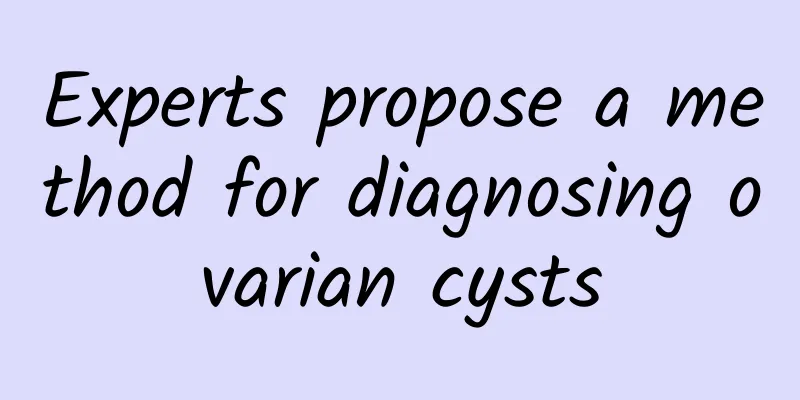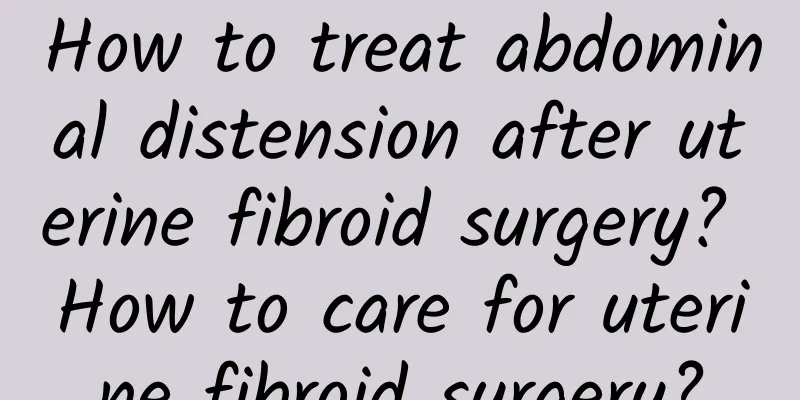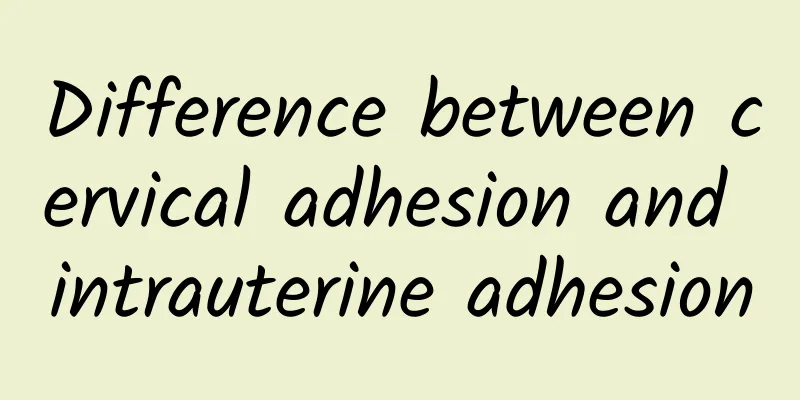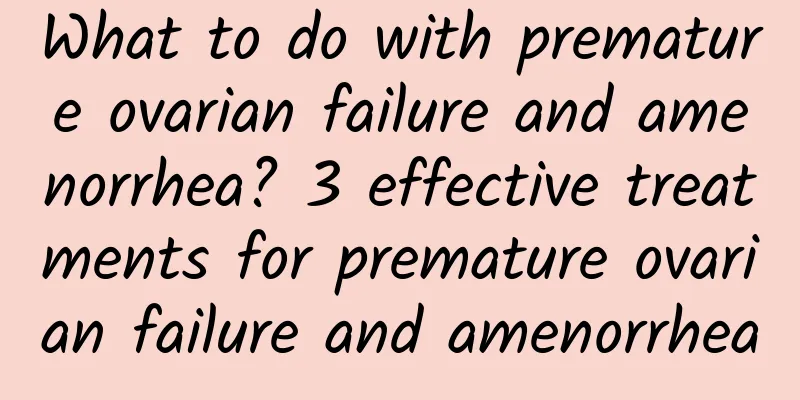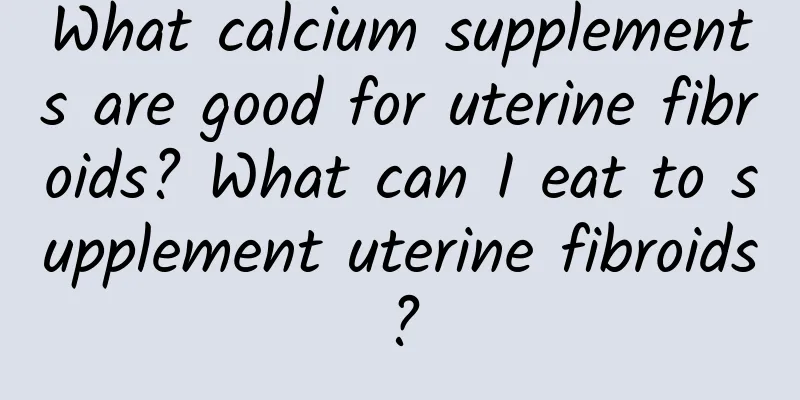What are the symptoms of uterine fibroids? What can I eat to eliminate uterine fibroids the fastest?
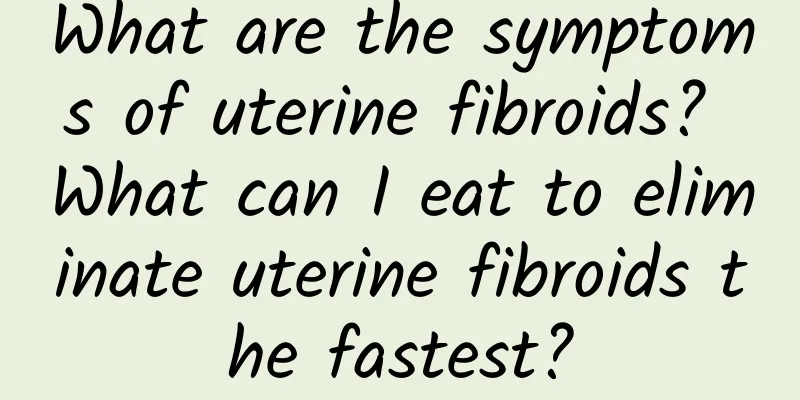
|
What are the symptoms of uterine fibroids? Uterine fibroids are common benign tumors in the female reproductive system. They usually occur in the smooth muscle layer of the endometrium or uterine wall, causing uterine enlargement and pain. Although uterine fibroids are harmless tumors, they can cause many problems for the patient's quality of life and fertility. Therefore, women before and during pregnancy should pay close attention to the precursor symptoms of uterine fibroids so that timely measures can be taken. Let's take a closer look at the precursor symptoms of uterine fibroids and what to eat to eliminate them the fastest. 1. Increased menstrual flow or prolonged menstrual period Patients with uterine fibroids may experience increased menstrual flow or prolonged menstrual periods during menstruation. This is because the presence of fibroids can cause the endometrium to be too thick, thus causing menstrual problems. If you find that your menstrual flow has increased significantly or your menstrual period has been prolonged for more than 7 days, it is likely one of the precursor symptoms of uterine fibroids. 2. Changes in the texture of menstrual blood Patients with uterine fibroids may experience changes in the texture of their menstrual blood. Normal menstrual blood should be bright red and have a certain viscosity. If your menstrual blood is dark red or mixed with blood clots, it is likely caused by uterine fibroids. 3. Abdominal pain or back pain Patients with uterine fibroids often experience abdominal pain or back pain. This is because the presence of fibroids increases the burden on the uterus, causing discomfort. The degree of abdominal pain and back pain varies. Some patients may only experience mild discomfort, while others may experience severe pain. 4. Difficulty urinating Patients with uterine fibroids may experience dysuria. This is because the enlargement of the fibroids may compress the bladder, thus affecting the discharge of urine. If you find yourself having frequent urination, urgency, or incomplete urination, it may be related to uterine fibroids. 5. Abnormalities in routine examinations Women with uterine fibroids may find an enlarged uterus or a mass during a routine gynecological examination. If you have regular gynecological examinations and find an enlarged uterus or an abnormal mass, it is likely a fibroid. What to eat to eliminate uterine fibroids fastest Although uterine fibroids cannot be completely eliminated through diet, some specific foods and conditioning methods may help slow down the progression of symptoms. Here are some foods that can help eliminate uterine fibroids: 1. Foods rich in fiber Fiber-rich foods, such as fresh vegetables, fruits, and whole grains, can help regulate hormone levels, promote the elimination of waste in the body, and relieve symptoms. At the same time, fiber can help maintain a sense of fullness and avoid overeating. 2. Low-fat foods High-fat foods may cause hormone disorders, which can aggravate the symptoms of uterine fibroids. Therefore, reducing the intake of high-fat foods and choosing low-fat foods such as fish and vegetables may help relieve symptoms. 3. Drink brown sugar water Brown sugar is believed to have the effect of warming the meridians and dispelling cold, and may have a certain effect on improving menstrual problems in patients with uterine fibroids. Drinking an appropriate amount of brown sugar water every day can help relieve symptoms and increase energy in the body. 4. Avoid irritating foods Irritating foods, such as spicy foods, coffee, strong tea, etc., may aggravate the symptoms of uterine fibroids. Therefore, try to avoid these foods in your diet to reduce the occurrence of symptoms. In summary, the precursor symptoms of uterine fibroids include increased or prolonged menstrual flow, changes in the texture of menstrual blood, abdominal pain or back pain, difficulty urinating, and abnormalities in routine examinations. Although uterine fibroids cannot be completely eliminated through diet, eating fiber-rich foods, low-fat foods, drinking brown sugar water, and avoiding irritating foods may help slow down the worsening of symptoms. However, dietary conditioning can only be an auxiliary treatment, and a doctor's diagnosis and treatment are still required for the fundamental elimination of uterine fibroids. Therefore, if you suspect that you have uterine fibroids, it is recommended to consult a professional doctor in time to develop an individualized treatment plan. |
<<: When will menstruation come after abortion? How many days will menstruation come after abortion?
Recommend
What is the reason for red pimples on the face during menstruation?
What is the reason for red pimples on the face du...
Clinical manifestations of bacterial vaginosis
Bacterial vaginosis is a gynecological inflammati...
How uterine fibroids are caused
What causes uterine fibroids? Uterine fibroids ar...
What are the commonly used drugs for threatened abortion?
Many women experience symptoms of threatened abor...
What are the common methods of individualized treatment of endometriosis?
The treatment of endometriosis currently advocate...
How to treat acute ectopic pregnancy? Is there a need to have children?
When a woman finds that she has an acute ectopic ...
Can I have children with endometriosis?
Patients with endometriosis can have children, bu...
What to do if your vulva is itchy
What to do if you have vulvar itching? Vulvar itc...
Causes of dysmenorrhea in women
Women will experience many symptoms during menstr...
Experts tell about the causes of cervical hypertrophy
Cervical hypertrophy is a common type of chronic ...
What are the early symptoms of missed abortion? We must pay attention to it
The early symptoms of missed abortion mainly incl...
Paying attention to the harm of pelvic inflammatory disease is the most important step
In recent times, the harm of pelvic inflammatory ...
What are the causes of infertility due to left ovarian cysts? How to treat it with traditional Chinese medicine
To be precise, the left ovarian cyst is an ovaria...
What are the symptoms of hydatidiform mole?
Hydatidiform mole is a benign tumor. When it is d...
What does physiological miscarriage mean?
Physiological miscarriage usually means biochemic...

